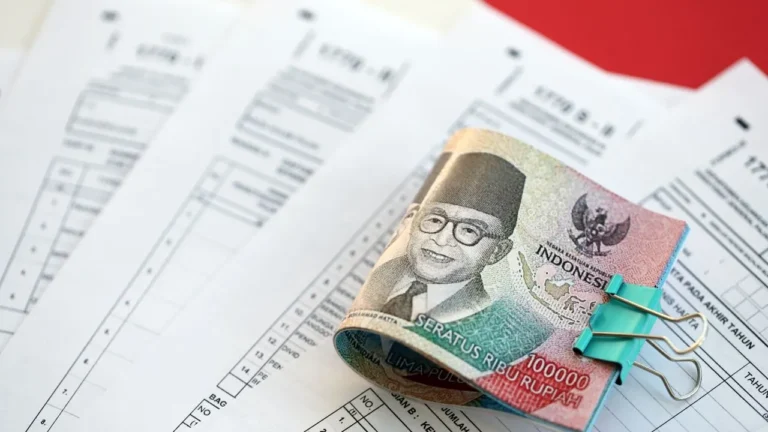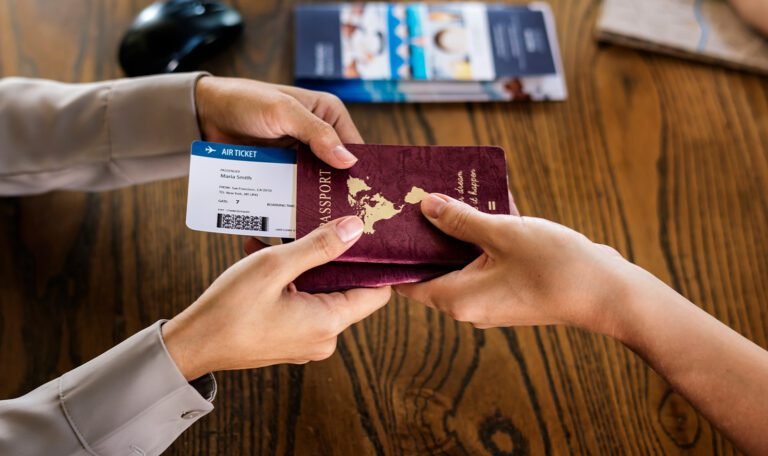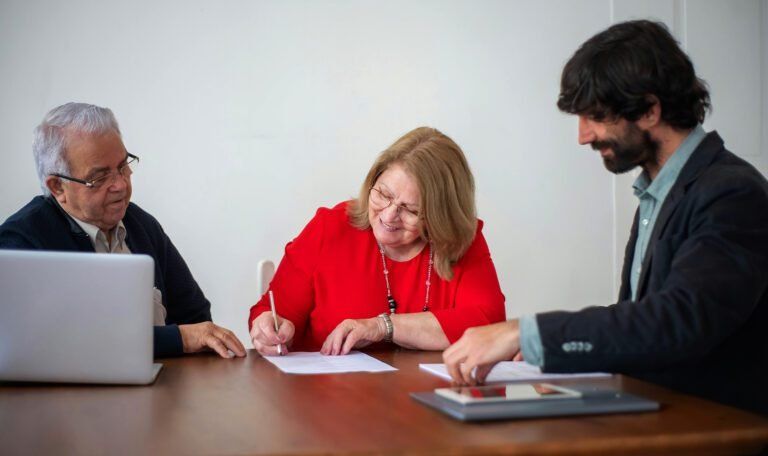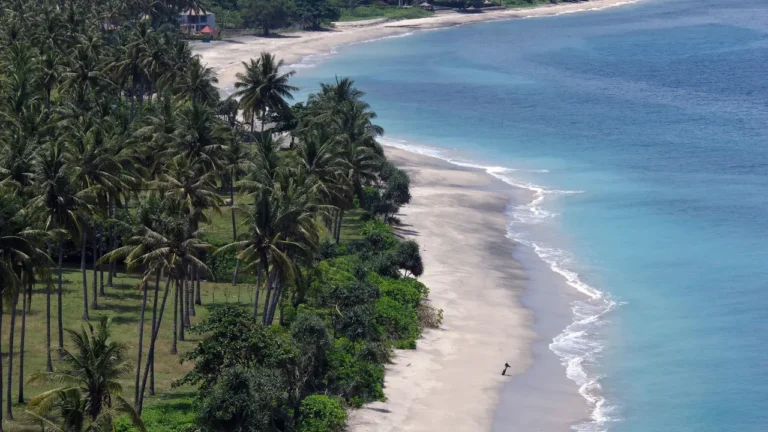Table of Contents
ToggleConsidering a move to Bali? Understand the essentials of obtaining a visa to live in Bali for long-term living on this tropical island. This article demystifies visa categories like the B211A tourist visa for up to 180 days, various long-stay KITAS, and the Second Home Visa – each with different perks and requirements. Dive in as we navigate the requirements and application processes to help you begin your life in Bali.
Key Takeaways
- Bali offers a variety of visa options for long-term stays and second homes, including tourist visas, multiple entry business visa type C and D, KITAS, and the new Second Home Visa, catering to tourists, investors, retirees, and remote workers.
- Obtaining a visa for business or investment in Bali requires complying with specific eligibility criteria and completing a series of procedural steps, including company registration and evidence of substantial investment in Indonesia.
- Integration into Balinese society involves more than securing a visa; it entails engaging with local governance units, respecting community customs and traditions, and fulfilling legal obligations such as tax reporting and visa cancellations upon departure.
Exploring Visa Options for Long-Term Living in Bali

To consider Bali as a potential second home, it’s essential to familiarize yourself with the different types of visas available for long-term residency. Options range from the ex- B211A tourist visa (qualified now as visa C2 and several KITAS categories to the new Second Home Visa.
Starting with the popular choice among travelers, the ex-B211A (visa C2) tourist visa enables an initial visit for 60 days that can be extended twice, each time by another 60 days, totaling up to 180 days without having to exit Bali. But if you’re looking at staying beyond that duration, you might want to progress from a B211A tourist visa toward obtaining a KITAS.
KITAS offers more prolonged stays varying between one and two years depending on its type—for instance. There are E28A Sponsored Investment KITAS or Dependent KITAS—both granting multiple entry benefits. Those who are over sixty may take advantage of the Retirement KITAS designed specifically for them which allows yearly renewal after living in Bali initially for twelve months.
Unveiled towards the end of 2022 is yet another lucrative path—the Second Home Visa—which has caught attention, particularly amongst retirees, but also caters professionals keen on settling down in Bali longer term—it extends up to five years residence and provides provisions enabling family members’ sponsorship.
Your visa process made easy with ILA
Indonesia has so many visas to choose from, each with its own requirements, regulations, and duration. With more constantly being issued by the government, it can be hard to keep track and choose one that is right for you.
With the help of ILA, you can be sure that you’ll get the best visa for your needs as quickly and efficiently as possible without having to worry about any missing documents.
Whether you’re looking for an Investor KITAS, Working KITAS, Second Home Visa, Spouse KITAS, Multiple Entry Business Visa or Remote Worker Visa, we can help make the process efficient and smooth.
Schedule a free consultation today or learn more about the different visa options.
Visa options for investment in Bali and Indonesia
Investor KITAS (up to 2 years)
For individuals intending to make investments in Bali or other regions of Indonesia, the Investor KITAS E28A presents an excellent option. This type of visa remains effective for a period of two years and serves as an entry point into Indonesia’s realm of possibilities. To qualify, one must demonstrate ownership stakes amounting to a minimum value of Rp10,000,000,000.00 within a guarantor firm that is recorded with either the Ministry of Investment or the Indonesian Investment Coordinating Board.
Securing an Investor KITAS entails multiple stages which consist primarily of:
- Registering your company
- Securing an eVisa
- Completing onshore registration through Indonesian immigration authorities
- The final step is obtaining your actual KITAS. The passport validity has to be more than 6 months
Ordinarily, this procedure takes approximately 3 weeks to 1.5 months from start to finish when public holidays are not considered in the timeframe.
Pre-investment visa (up to 2 years)
On another note, for those who are at the preparatory stage looking forward to investing in Indonesia there’s provision for them. They may opt for what’s known as pre-investment visas having same longevity tenure that permits engaging in business-related activities such preparations including but not limited ground inspections all through appraisals concerning feasibility even extending invitations relatives friends alongside leisure travels. The passport validity has to be more than 6 months before entering the country.
The advantage of this visa is that the Indonesian government doesn’t require to establish a company. The immigration website qualify this visa as a visa to prepare investment in Indonesia. No medical insurance is required.
Business visa option for travelers in Bali and remote workers

Single entry Business visa (Visa C)
Bali presents an idyllic setting for professionals whose work extends beyond geographical limits or for those who operate with a laptop as their mobile office. For these global workers and digital nomads, Bali’s business visa offerings provide adaptable arrangements. Specifically, the Business Visa C2 serves as a single entry visa that remains valid for 60 days and is extendable to up to 180 days. For applicant who plan to stay longer, there are several options such as the multiple entry visa or remote worker visa below.
- Passport valid for at least 6 (six) months (for holders of travel documents other than passports such as emergency passports, documents of identity, etc. must be valid for 12 months).
- Personal bank statement with minimum amount USD $2000 or equivalent the last 3 months period (including name, date of period, and balance account)..
- Latest color photograph.
- Information, invitations, or correspondence from government agencies or private institutions that Explain the relationship with the Applicant.
Read Also: E33G: Remote Worker Visa (Digital Nomad) for Bali
Multiple entry visa business visa (up to 5 years)
Conversely, individuals who necessitate recurrent travel into and out of Indonesia can opt for either the D2 visa or the newly introduced remote worker visa E33G. These visas cater to multiple entry needs over periods of up to 5 years and 1 year respectively. Both require possession of a passport with at least six months remaining validity along with evidence substantiating living expenses upwards of US$ 2,000. The E33G stands out particularly advantageous for remote employees by permitting numerous entries within its tenure without mandating repeated applications for work permits or additional visas.
- Passport that is valid for at least 6 (six) months.
- Proof of living expenses of at least US$ 2,000 (two thousand United States Dollars) or equivalent.
- A recent color photograph.
- Any of the following documents:
- Information, invitations, or correspondence from government agencies or private institutions that Explain the relationship with the Applicant. Or
- Statement letter from the spouse or parents explaining the family relationship with the applicant and the activities to be carried out in Indonesia, attached with a family card / similar document.
E33G – Remote worker visa
The recent remote worker visa E33G offers the possibility to stay in Indonesia for one year with a limited stay permit (KITAS). This option allows digital nomad or any remote worker to work legally and remotely from Indonesia. The advantage is the multiple and re-entry permit (MERP) connected to the permit. Remote workers can now go In and Out of the country during 1 year without having to reapply for a visa. This option is more beneficial than the C2 (B211) single entry business visa. Indeed the C2 is cancelled each time the visa holder leaves the country. One of the benefit of the KITAS is the ability to be considered as a resident and be able to subscribe to insurance, health care program. buy motorbikes and other benefits.
Navigating the Digital Nomad Lifestyle with Appropriate Visas
Embracing the digital nomad lifestyle offers the liberty of working from any location, yet it’s imperative to abide by legal requirements regarding visas. In Bali, the C2 Visa serves as an optimal choice for digital nomads due to its compatibility with tourist activities, business endeavors, and social visits while providing up to 180 days of flexibility tailored to their distinct needs.
On entry into Bali, this visa initially has a validity period of 60 days, but rest assured that extensions are available. Digital nomads can secure two subsequent extensions at intervals of 60 days each—enabling them a cumulative stay of up to half a year without necessitating departure from Indonesia. Conversely, for those who travel frequently in and out of the country, they might find either the new multiple entry remote worker visa or multiple entry business visa more suitable options.
Retirement Visa – Golden Visa (up to 5 years)
For those who have reached the golden years and are dreaming of spending them in the serene landscapes of Bali, the Retirement KITAS presents an attractive option. This special visa is tailored for retirees who wish to enjoy a prolonged stay on the island. Eligible applicants must be 55 years or older and meet certain financial requirements, such as proving a steady pension income or possessing substantial savings.
The Retirement KITAS is valid for one year initially but can be renewed annually for up to five years. After this period, retirees may consider applying for a Permanent Stay Permit (KITAP) if they wish to continue their stay indefinitely.
To obtain a Retirement KITAS, applicants must provide:
- Proof of living expenses for oneself and/or his/her family of at least US$ 2,000 (two thousand US Dollars) or equivalent
- Latest color photograph.
- Statement of commitment that the applicant will deposit funds in an account in his/her own name worth at least US$50,000 (fifty thousand US dollars) in a state-owned bank.
- Proof of income or benefits with a minimum value of US$3,000 (three thousand US Dollars) per month
The process involves coordinating with a local sponsor, usually a visa agent, who will assist with the application process and ensure compliance with Indonesian regulations. Once granted, the Retirement KITAS allows multiple entries into Indonesia, making it convenient for retirees to travel in and out of the country. It’s a seamless way to transition into a laid-back lifestyle amidst Bali’s cultural richness and natural beauty.
Read Also: Retiring in Indonesia: Unlocking Paradise with Visas, Property, and Blissful Living.
Second home visa
The Second Home Visa presents a transformative opportunity for those aiming to make Indonesia their lasting abode. By applying online, foreigners can seek permanent residency in Indonesia with options for 5 or 10-year durations.
To qualify for the Second Home Visa, applicants must ensure they have:
- a passport that remains valid for at least 36 months
- an up-to-date photograph
- an updated Curriculum Vitae
- evidence of financial capability with minimum funds of 2 billion Indonesian rupiah or ownership proof of high-end property
Embracing this visa could be the pivotal move towards fulfilling your aspiration to reside in Bali permanently.
List of Visas available for foreigners in Bali
- B1 Tourist Visa
- C2 Business and Tourist visa (Former B211)
- D2 Multiple entry business visa up to 5 years
- E33G Remote worker visa
- Investor Visa
- Pre-investment Visa
- E23 Employment Visa
- Spouse and Dependent Visa
Opening a bank account in Bali

Once you have secured your visa, the next important step in establishing yourself in Bali is to open an account with a local bank. As an expatriate holding a limited stay permit (KITAS), you are eligible to set up either a personal or corporate bank account, provided that if it’s corporate, you are acting as the director of your company. This procedure usually spans over several days and can be completed at various banks such as Permata, BNI, OCBC NISP*, and Bank Mandiri.
Among these banks is OCBC NISP*, which stands out due to its convenient online platform and superior currency conversion features – benefits especially advantageous for businesses and investors who need to perform frequent currency transactions.
*NISP added for clarification since OCBC operates differently across countries. In Indonesia, especially through “Bank OCBC NISP”.
What You Need to Know About the Immigration Office and Indonesian Law
Grasping the responsibilities and operations of the Indonesian Immigration Office is crucial for effectively handling immigration procedures. Located within the Ministry of Law and Human Rights, the Directorate General of Immigration (DGI) holds authority over all aspects related to immigration in Indonesia. Responsibilities extend from developing and enforcing policies to delivering services, upholding law enforcement, as well as collaborating with other Indonesian authorities like embassies.
For those planning to visit or reside in Indonesia, there are multiple visas and stay permits available that accommodate needs such as professional engagements, joining family members or conducting business activities. Upon arrival with an e-visa, it’s imperative that one reports to the nearest immigration office within a 30-day window to convert their entry authorization into a proper stay permit. Bear in mind too that any lapse beyond your authorized period can lead to significant penalties or compulsory expulsion from the country.
What to do once you have a limited stay permit (KITAS)
Obtaining a KITAS marks the beginning of your new adventure. There are several essential actions you must undertake afterward. To start, within 14 to 30 days, you have to register with the local Civil Government authorities in order to receive both an SKTT (Temporary Resident Letter) and a NIK (Temporary ID Number).
Should you be living in Bali as a foreign national holding a KITAS, it’s mandatory for you to declare your personal income tax there—even if that income is nonexistent. This requirement is uniform for both employees and investors.
Finally, when the time comes for your departure from Indonesia, it’s necessary to proceed with annulling your KITAS via an EPO process (Exit Permit Only). Following confirmation of this procedure, departures must be made from the country within seven days’ time. In other words, you have 7 days to leave Indonesia.
Planning Your Arrival: International Airports and Visa on Arrival (VOA) for short term stay
When planning your trip to Bali, it’s important to be familiar with the procedures at international airports concerning short-term visit visas. The I Gusti Ngurah Rai International Airport stands as the main entry point for travelers into Bali and offers immigration facilities that provide a Visa on Arrival (VOA).
The VOA serves a range of travel intentions such as:
- sightseeing
- official government visits
- engaging in business discussions
- making commercial purchases
- attending business gatherings
To ensure your visa application proceeds without any hitches, you might want to enlist the services of a professional visa agent.
This VOA is accessible for citizens from 89 different countries and remains valid for an initial period of 30 days. It can subsequently be extended once by an additional 30-day period. Priced at around USD 35 or you can use a visa agent, there’s also the convenience of paying for your visa online prior to arrival, which helps bypass long lines at the airport.
Settling in Bali: Local Authorities and Community Integration
Settling in Bali entails more than just handling documentation and arranging your new home. It involves a deep dive into the culture and becoming an integral part of community life. Central to this is the role of the Banjar, which serves as local authorities pivotal in orchestrating village dynamics within Bali. For expatriates, interacting with these bodies is crucial since they govern various aspects including:
- The organization of social and cultural functions at a grassroots level
- Planning communal gatherings and traditional ceremonies
- Upholding longstanding local customs and practices
- Mediating disputes amongst villagers
It’s through engagement with such activities under the auspices of the Banjar that newcomers can truly weave themselves into the societal fabric and acquire an authentic appreciation for Balinese ways.
Assimilation requires showing respect towards endemic traditions, actively involving oneself in ritualistic events, and making contributions towards collective welfare. In a Balinese society where family values bleed over into broader social relations—including those with outsiders—adherence to established conventions, ethical standards, and rules set by local authorities becomes expected behavior for immigrants residing on this Indonesian island sanctuary.
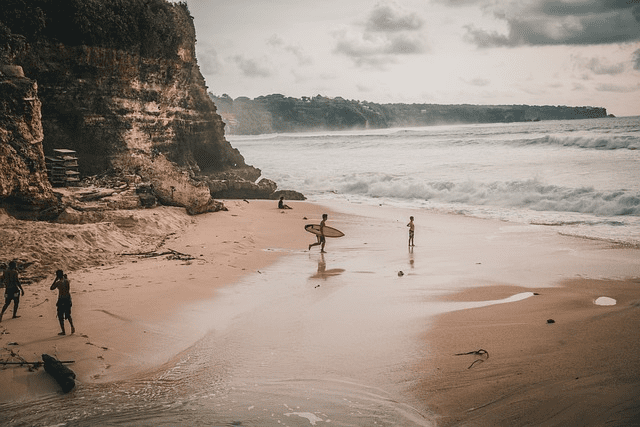
Essential Preparations Before Leaving Your Home Country
Before setting off for your Bali adventure, it’s essential to handle specific preparations back in your home country. Make sure that you have properly organized all necessary travel documents which should include:
- A colored photocopy of your passport
- Up-to-date photographs
- Your curriculum vitae (CV)
- Health insurance documentation
- The most recent statement from your bank account showing funds available
- Details of where you will be staying in Bali
Financial matters are also key and require careful planning before departing. To ensure financial security and accessibility, consider the following steps:
- Inform your banking institutions and credit card providers about relocating overseas to prevent unauthorized transaction flags and guarantee uninterrupted access.
- Inspect the validity period on all credit/debit cards so they don’t expire before or shortly after getting to Bali.
- Acquire some local Indonesian currency beforehand as a precaution.
- Look into services like Wise for economical options when transferring money internationally.
Finally, attend to these last tasks before embarking towards Bali.
-Sort out any current subscriptions or memberships such as gym facilities or digital streaming platforms by either pausing them temporarily or cancelling them entirely.
-Make legal document updates including drafting a new will if necessary, reflecting details pertinent to relocation. Communicate their location information clearly with members of family.
-Put arrangements in place concerning mail management either through redirecting postal mail towards another address via forwarding services, or employing virtual mailbox solutions for ease handling correspondences originating from one’s home nation correspondence .
Summary
In conclusion, making Bali your second home involves understanding visa options, engaging with local authorities, and embracing the local culture. It’s about preparing adequately before leaving your home country and taking the necessary steps once you arrive in Bali. With all the right preparations, you can make the transition smoothly and truly enjoy the beauty and warmth that Bali offers.
Frequently Asked Questions
How can I live in Bali permanently?
If your goal is to reside indefinitely in Bali, you are eligible to seek the Indonesian Permanent Residency (KITAP) once you have lived there for a continuous period of five years or a cumulative total of ten years with a KITAS.
By obtaining this status, your duration on the island can be prolonged.
Can an a foreigner open a bank account in Bali?
Foreigners seeking to open a bank account can do with a KITAS. Some banks may accept to open a bank account with a tourist visa but the official regulation is to have a KITAS.
How long can foreigners stay in Bali?
Upon arrival in Bali, foreigners have the option to stay for a maximum of 30 days with a Tourist Visa. To extend their stay up to 60 days, they can obtain a Visa on Arrival (VOA) and subsequently visit Immigration for an extension. There are several options to stay up to 5 years without having to apply for another visa though an agent or a visa online.
How do I get a visa to stay in Bali?
To obtain a visa for an extended stay in Bali, you have two options: you can submit an application via the online platform of Indonesian immigration authorities with the assistance of a local sponsor or go through the process of the immigration website.
When applying through the online system, it is mandatory to have a sponsor who is based in Indonesia for some of the visas.
Can foreigners work in Bali?
To legally work in Bali, foreigners must acquire a valid work permit alongside a temporary stay permit which authorizes them to be employed within Indonesia.





